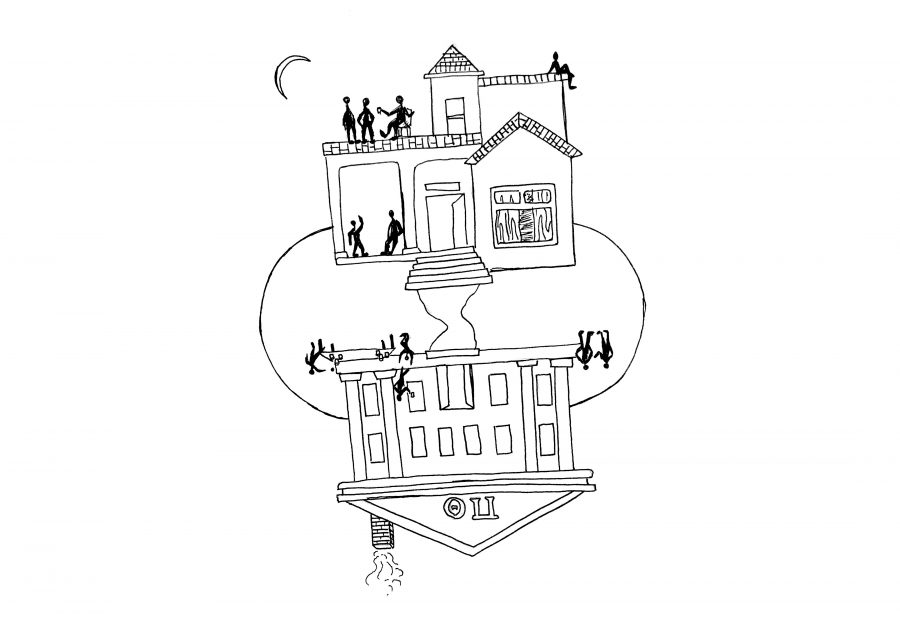There are lots of parties in college: fraternity parties, co-op parties, Sixth Street parties, apartment parties, spirit group parties, sports team parties and many more.
When we socialize, we interact with people we’re comfortable around and can relate to. However, diversifying where you party forces you to engage with different groups, protects against harmful stereotypes and bridges divides between communities.
“A community comes together to make parties happen,” said Lia Mouton-Johnston, a finance and Plan II junior. “It’s almost a representation of who the community is.” Because a party is put on by a specific community or organization, it’s an often overlooked opportunity to experience different people and social groups. When an open party is organized, there’s an invitation to those outside of the immediate community to engage and mingle. The community putting on the party is then expected to be welcoming and accepting of others. But without any diverse social engagement, negative consequences arise.
Only interacting with certain social groups makes it easy to generalize and judge. Different communities are seen as singular entities. All members of a community are then judged based on prejudice rather than who they actually are as individuals. We do this because it simplifies how we see the world. It makes sense to categorize people because it helps us organize our surroundings.
Whenever negative characteristics are assigned to others, people tend to bond more with their own group. A cycle is then established where stereotypes are perpetuated to ensure group togetherness and exclusivity.
“In Greek life, social hierarchies and categorization of different fraternities makes it easy to feel special or exclusive.” government junior Joseph Gromatzky said. “Asking who’s in what house is a way to socially vet people.” While there’s nothing wrong with feeling more comfortable with your friends, when it’s done at the expense of others feeling unwelcome, harmful and elitist mindsets arise.
The possibility of meaningful relationships and fulfilling college experiences increases when we’re open to experiences and accepting of new communities.
“The first time I went to a Plan II party, I wasn’t sure if I’d enjoy myself because of what I’d heard about people in Plan II,” Gromatzky said. “After I started talking with people, I actually started to enjoy myself.” It’s difficult to connect with people when we socially pigeonhole them. But when relationships are formed outside of the social norm, communities can appreciate what they have in common more than what makes them different.
The quickest way to prevent yourself from making friends with new people is to believe you already know what type of people they are.
Beyond preventing stereotypes, we may even find communities we connect with. “When I first started going to co-op parties, I had friends who’d tell me co-ops were dirty and weird,” chemical engineering senior Monica Batra-Shrader said. “But the more I went, the more I liked them.” It’s at events such as parties where we’re given the chance to bridge gaps between socially disparate communities.
“I like co-op parties a lot because the people seem to value uniqueness and self-expression” Batra-Schrader said.
“I like fraternity parties because of the camaraderie and brotherhood,” said Gromatzky.
“I like apartment parties because of the relaxed atmosphere and casual conversation,” said Victoria Macclements, sustainability studies and Plan II junior.
Every party and social group offers something different. Experiencing them for yourself is the best way to discern what you enjoy while appreciating separate communities for their unique people. Next time you go out, go somewhere you’ve never been before.
Michael Martinez is a government and Plan II junior from Austin.





















